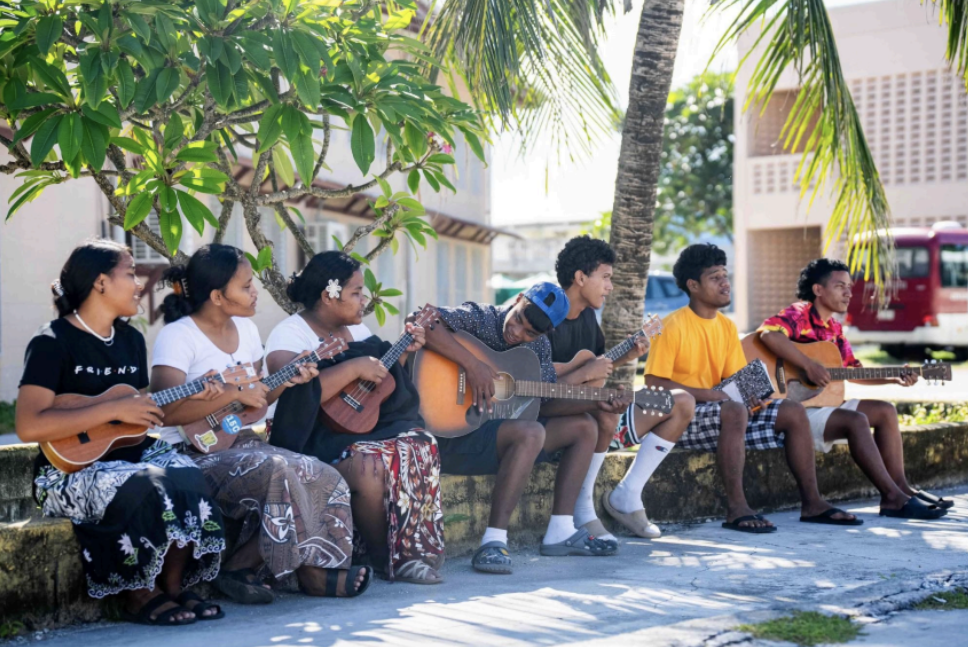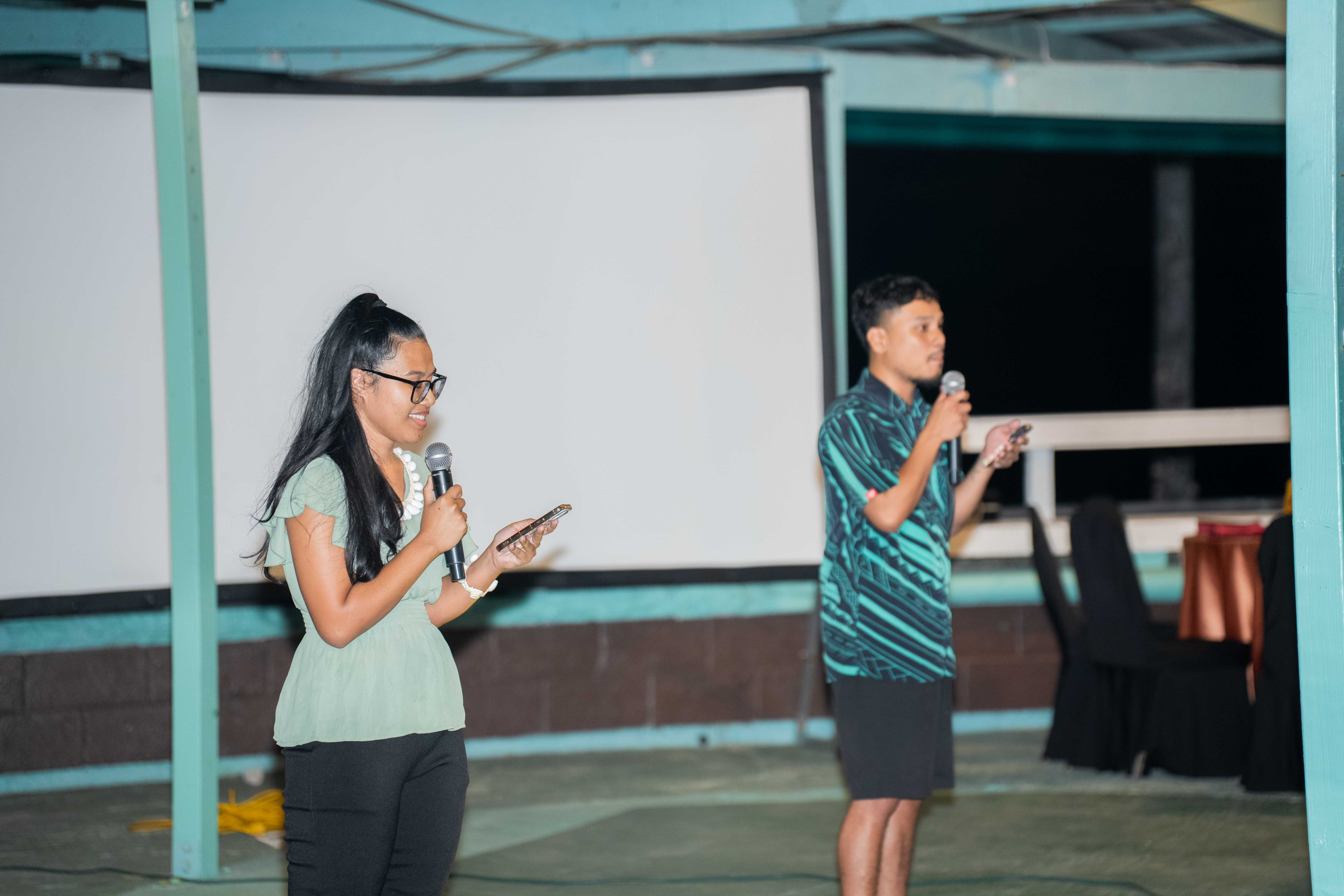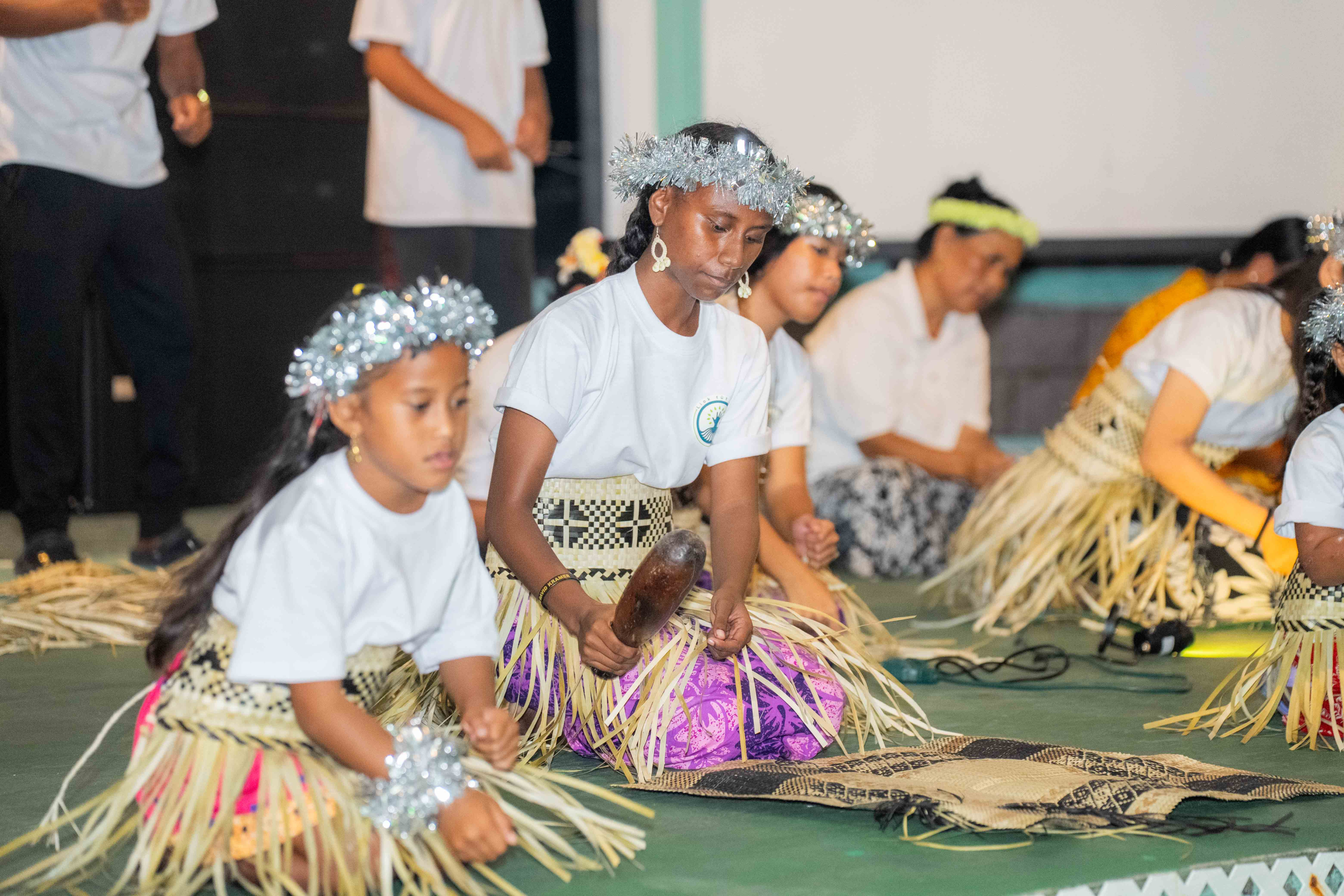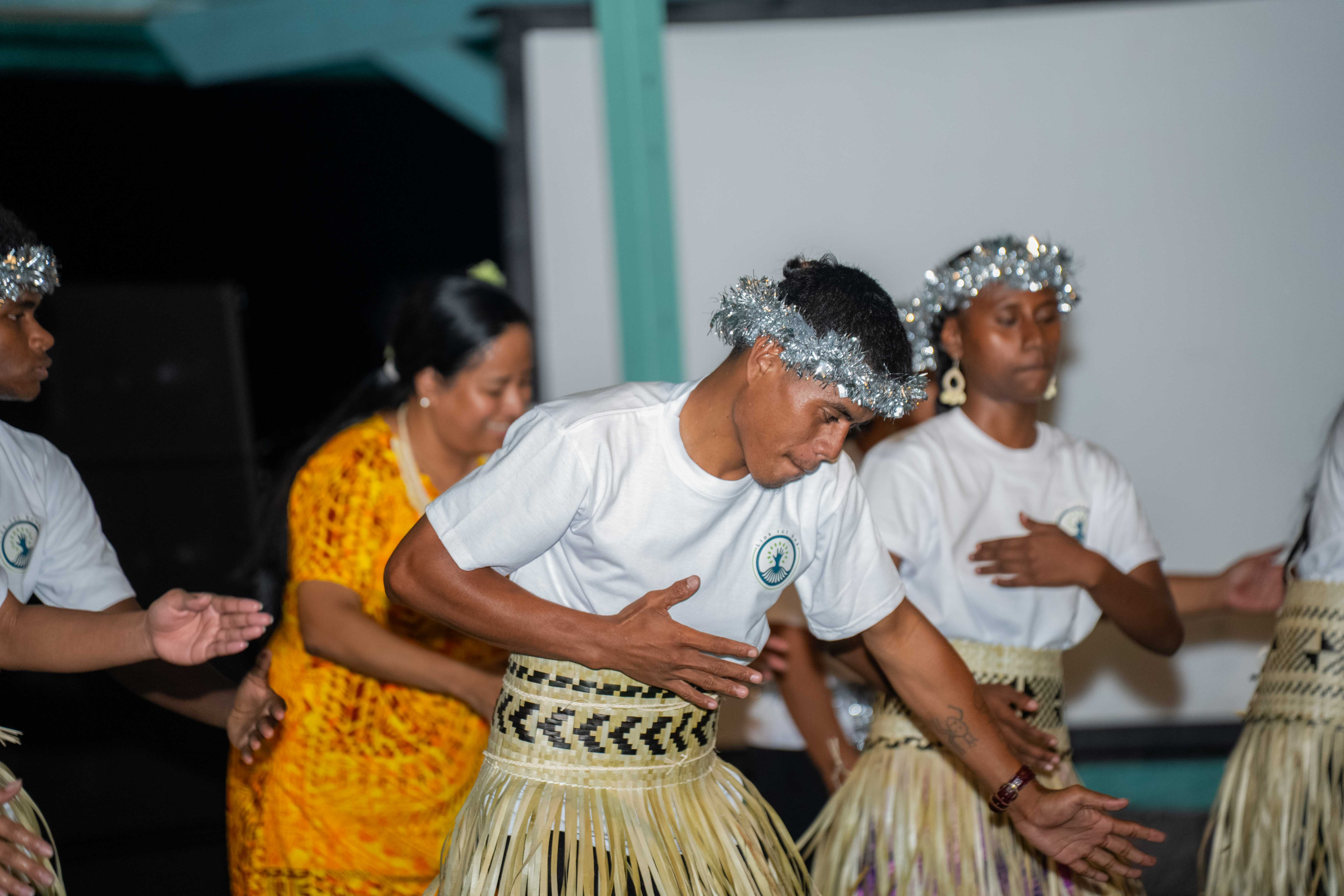
The Republic of the Marshall Islands’ non-governmental organization Jo-Jikum hosted the Climate Adaptation Arts Seminar (CAAS) 2025, engaging more than 50 youth to raise awareness on climate change impacts and adaptation and connect with their heritage. The 2025 CAAS was held between July 28 and August 8 and focused on the Marshall Islands’ National Adaptation Plan (NAP).
JO-JIKUM, meaning “your home” in Marshallese, is a youth-led nonprofit founded in 2012 that is dedicated to educating and empowering Marshallese youth to take action on climate change and nuclear legacies.

CAAS 2025 aimed to amplify youth voices in climate resilience through art, education, and community engagement. The agenda was developed to help raise awareness of climate change impacts and adaptation action, aligned with the Marshall Islands’ 2023 NAP, also known as its “national survival plan,” or in the Marshallese language, Pepjelmae.
The seminar engaged a diverse group of more than 50 youth participants, primarily students under the age of 18, representing atolls and schools from the Marshall Islands.

Highlights from CAAS 2025 included the Marshall Islands’ NAP Coordinator Bertine Lakjohn sharing an introduction to the NAP, RMI’s Adaptation Working Group, and a technical overview of a LiDAR-based sea level rise model.
Further sessions covered a range of topics, including an Adaptation Strategy Role-Play Game and presentations on the RMI Health National Adaptation Plan, Energy Roadmap, loss and damage, and Traditional Knowledge in modern approaches to protecting land, ocean, and natural resources.
Invited speakers represented the following organizations: Climate Change Directorate (CCD), Ministry of Health and Human Services (MOHHS), Marshall Islands Conservation Society (MICS), National Energy Office (NEO), Waan Aelon in Majol (WAM), National Nuclear Commission (NNC), CMI Nuclear Institute, and the Marshall Islands Red Cross Society (MIRC).

CAAS 2025 closed with a Showcase Night to share the artworks developed through the camp and to highlight the role youth can play as agents of positive change in their communities. Youth is mentioned in 58 out of 63 multisector national adaptation plans submitted by developing countries (see more information on NAP Trends). CAAS 2025 uniquely combined artistic and cultural expression, Traditional Knowledge, and hands-on practical learning to increase young people’s knowledge and understanding of climate change, community-driven adaptation efforts, and community resilience.
CAAS 2025 was organized by the Jo-Jikum team, Johnny Kennedy Silk Jr. (Project Lead); Haruka Sato, Juliet Paul, Kiyoshi Tadashi, and Junior Anej (Youth Assistants); Art Instructors Susan Jieta (Weaving), Jobod Silk (Songwriting), Vicky Jamore (Painting), Chewy Lin (Photography); as well as Danity Laukon (Director), Koneaea Ishimura (Program Manager), and Danica Muller (Finance).
The 2025 CAAS was organized with support from the NAP Global Network through financial assistance from the Irish government.